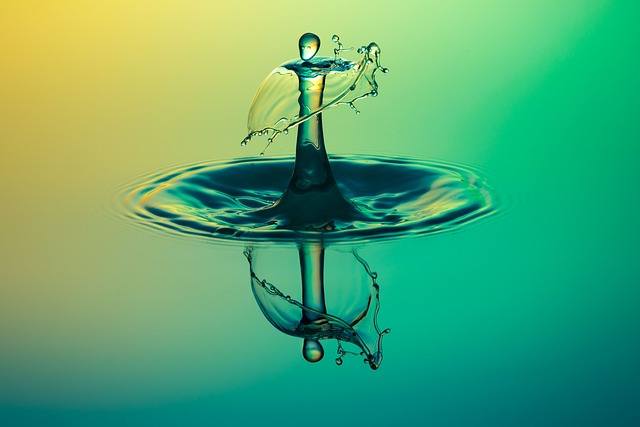If you’ve ever looked at your car, shower, or kitchen sink and noticed unsightly hard water stains, you’re not alone. Hard water spots can be a nuisance, ruining the appearance of otherwise shiny surfaces. Fortunately, with the right approach, you can remove these stains and keep your surfaces looking pristine. In this comprehensive guide, we’ll explore everything you need to know about hard water spots, including their origins, effective removal methods, prevention tips, and even product recommendations. Let’s dive in!
Understanding Hard Water Spots
What Are Hard Water Spots?
Hard water spots are mineral deposits that remain after water evaporates. The primary culprits of these spots are calcium and magnesium ions, which are prevalent in hard water. When water droplets dry on a surface, they leave behind these minerals, resulting in unsightly white or cloudy stains. Not only are these spots unattractive, but they can also cause long-term damage to surfaces if not addressed promptly.
Where Do Hard Water Spots Come From?
Hard water spots can appear in various places, including:
- Faucets and Showerheads: Water splashes off these surfaces, often leaving mineral deposits behind.
- Glassware and Dishes: Dishes washed in hard water may develop a cloudy appearance.
- Tiles and Bathtubs: Mineral buildup can make bathrooms look dirty and neglected.
- Car Windows and Paint: Vehicle care becomes essential when spots detract from your car’s appearance.
Understanding the origins of these spots can help you take proactive steps to minimize their occurrence.
Effective Methods to Remove Hard Water Spots

Now that you understand what hard water spots are and where they come from, let’s explore various methods to remove them effectively.
Pre-Cleaning Preparation
Before you start the cleaning process, gather your cleaning tools:
- Microfiber Cloths: These are essential for avoiding scratches while cleaning surfaces.
- Spray Bottles: For easy application of cleaning solutions.
- Soft Scrub Brushes: Ideal for stubborn stains without damaging surfaces.
- Gloves: Protect your hands while using cleaning solutions.
Natural Remedies
Using natural cleaning solutions can be effective and eco-friendly. Here are a few popular methods for removing hard water stains.
White Vinegar Method
Vinegar cleaning solution is a powerful tool against hard water stains due to its acidity, which can dissolve mineral deposits. Here’s how to use it:
- Mix a Solution: Combine equal parts white vinegar and distilled water in a spray bottle.
- Apply the Mixture: Spray the solution directly onto the affected area.
- Let It Sit: Allow it to sit for about 5–10 minutes to penetrate the stains.
- Wipe Away: Use a microfiber cloth to wipe away the solution. Rinse the area with distilled water to remove any vinegar residue.
Tip: For car window care, this method works wonders. Just be cautious about applying it on hot glass or in direct sunlight to avoid streaks.
Baking Soda Method
Baking soda paste is another effective remedy. Its mild abrasiveness makes it suitable for spot cleaning without scratching surfaces.
- Make the Paste: Mix baking soda with a small amount of water to create a thick paste.
- Apply to Stains: Use your fingers or a soft cloth to apply the paste directly onto the stains.
- Scrub Gently: With a microfiber cloth, gently scrub the area in circular motions.
- Rinse Thoroughly: After cleaning, rinse the area with distilled water.
This method is particularly effective for automotive maintenance—use it on paint and windows to remove tough stains without damaging the finish.
Lemon Juice Method
The acidity of lemon juice makes it another excellent natural cleaner. Here’s how to use it:
- Apply Fresh Lemon Juice: Squeeze fresh lemon juice onto the hard water spots.
- Let It Sit: Allow it to sit for 5–10 minutes.
- Scrub: Use a microfiber cloth to scrub the area.
- Rinse: Rinse with distilled water and dry the area.
Lemon juice not only removes stains but leaves a fresh scent behind, making it a great option for kitchen surfaces.
Commercial Cleaning Products
Sometimes, natural remedies may not do the trick, especially for heavily stained surfaces. In such cases, consider using a water spot remover from your local store. Here are some tips for choosing the right product:
- Read Labels: Look for products specifically designed for hard water stains.
- Eco-Friendly Options: If you prefer environmentally safe cleaning solutions, many brands offer biodegradable options.
- Check Reviews: Research products online to see which ones have received positive feedback for effectiveness.
Popular Commercial Products
| Product Name | Best For | Key Features |
| CLR Calcium, Lime & Rust Remover | Bathroom surfaces | Fast-acting, safe for most surfaces |
| Zep Calcium, Lime and Rust Stain Remover | Tile and grout | Heavy-duty formula, easy to use |
| Weiman Glass Cooktop Cleaner | Glass surfaces | Non-abrasive, leaves a streak-free shine |
| Mother’s Water Spot Remover | Automotive surfaces | Specifically designed for vehicles |
Preventing Future Hard Water Spots
Once you’ve removed hard water spots, it’s crucial to prevent them from coming back. Here are some effective strategies.
Daily Maintenance Tips
- Wipe Surfaces After Use: After showering or washing dishes, use a microfiber cloth to wipe down surfaces. This prevents water from evaporating and leaving mineral deposits.
- Use a Squeegee: Keep a squeegee in your shower and use it on glass doors after each use. This simple step can dramatically reduce the buildup of hard water stains.
- Rinse Well: Ensure that you rinse dishes and glassware thoroughly before putting them away. This helps remove any residual minerals that could lead to stains.
Installing Water Softeners
Consider installing a water softener to tackle the root of the problem. Water softeners work by replacing calcium and magnesium ions with sodium ions, effectively reducing the hardness of water.
Benefits of Water Softeners
- Long-Term Solution: They help reduce hard water problems throughout your home.
- Easier Cleaning: Softened water prevents stains from forming in the first place, requiring less frequent cleaning.
- Improved Appliance Lifespan: Softened water can help extend the life of appliances like dishwashers and washing machines.
Using Protective Coatings
After cleaning, consider applying a protective coating on surfaces. Products specifically designed for glass or car paint can help minimize future stains and make cleaning easier.
Recommended Products for Protection
| Product Name | Best For | Features |
| Rain-X Water Repellent | Glass surfaces | Repels water, reduces spots |
| Ceramic Coating for Cars | Automotive paint protection | Provides a durable, hydrophobic layer |
| Invisible Shield for Glass | Windows and mirrors | Protects against water spots and contaminants |
Specialized Care for Cars
Hard water spots can be particularly troublesome for vehicle owners. Not only can they mar the appearance of your car, but they can also degrade the protective coatings over time. Let’s explore some specialized care tips for maintaining your vehicle’s finish.
Routine Car Washes
Washing your car regularly can help prevent the buildup of hard water stains. Here are some car cleaning tips to keep in mind:
- Use Soft Water: If possible, wash your car with soft water to prevent mineral deposits from forming. If you don’t have access to soft water, consider using a water spot remover immediately after washing.
- Dry Immediately: After washing, dry your car with a microfiber towel. This minimizes the chance of water spots forming as the water evaporates.
- Use the Two-Bucket Method: This method helps prevent dirt and contaminants from being transferred back onto your car’s surface. One bucket is for soapy water, and the other is for rinsing your sponge or mitt.
Waxing Your Car
Regular waxing can provide an additional layer of protection against hard water spots and other contaminants. Here’s why waxing is essential:
- Creates a Barrier: Waxing forms a protective barrier that prevents minerals from sticking to the paint surface.
- Enhances Shine: A good wax job enhances your car’s appearance, making it look glossy and new.
- Simplifies Cleaning: When you wash your car, dirt and grime will come off more easily from a waxed surface.
Recommended Car Waxes
| Product Name | Type | Key Features |
| Meguiar’s Ultimate Liquid Wax | Synthetic | Long-lasting protection, easy to apply |
| Turtle Wax Super Hard Shell | Paste | Durable protection, high shine |
| Chemical Guys Butter Wet Wax | Cream | Easy to use, hydrophobic properties |
Glass and Window Care
Hard water spots on car windows can impair visibility and detract from the overall appearance of your vehicle. Here’s how to keep your windows crystal clear:
- Regular Cleaning: Use a vinegar solution or commercial glass cleaner specifically designed for automotive glass. Avoid ammonia-based cleaners, as they can damage window tint.
- Use a Squeegee: After washing your car, use a squeegee to remove excess water from the windows to prevent spotting.
Conclusion
Removing hard water spots doesn’t have to be a daunting task. With the right tools, techniques, and preventive measures, you can keep your surfaces—whether in your home or vehicle—looking immaculate. Remember, regular maintenance is key to minimizing hard water spots in the first place.
By understanding what hard water spots are, how to effectively remove them, and taking proactive steps to prevent their return, you can enjoy clean, sparkling surfaces that enhance your home and vehicle’s appearance. Whether you opt for natural remedies, commercial products, or a combination of both, the right approach will make all the difference.
FAQs
- What are hard water spots made of? Hard water spots are primarily composed of calcium and magnesium minerals that are left behind when water evaporates.
- How can I prevent hard water spots from forming? Wipe surfaces after use, rinse dishes thoroughly, and consider installing a water softener.
- Are natural remedies effective for removing hard water stains? Yes, solutions like vinegar, baking soda, and lemon juice are often very effective in dissolving mineral deposits.
- Is it safe to use commercial cleaners on all surfaces? Always read the label and ensure the cleaner is suitable for the specific surface you plan to treat.
- How often should I wash my car to prevent hard water spots? It’s best to wash your car every two weeks or more frequently if you notice spots forming.
Also Read More Article : Expert Tips for Adjusting Your Belt-Driven Redcat RC Car
